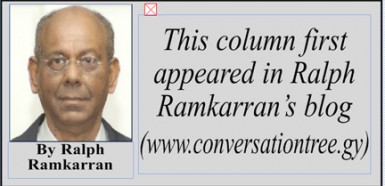 The judiciary is one of the three branches of government. It is a vital component of our democratic system and for this reason needs to function with a high degree of proficiency. Even though most citizens go through their lives without having to invoke the assistance of the judiciary to protect or defend their rights against other citizens or the state, nevertheless the judiciary is a bulwark against the violation of those rights. Citizens need to be assured that there is a fair and impartial judiciary that can deliver justice in a timely manner in the event that they need to call on its protection.
The judiciary is one of the three branches of government. It is a vital component of our democratic system and for this reason needs to function with a high degree of proficiency. Even though most citizens go through their lives without having to invoke the assistance of the judiciary to protect or defend their rights against other citizens or the state, nevertheless the judiciary is a bulwark against the violation of those rights. Citizens need to be assured that there is a fair and impartial judiciary that can deliver justice in a timely manner in the event that they need to call on its protection.
In the business community, commercial disputes arise frequently, although, like the general population, most go through their business without ever having to revert to the judiciary to solve disputes. A judicial system that can rapidly resolve commercial disputes is necessary not only to keep business activity turning over but to sustain confidence in the business community, both local and foreign, to invest or continue to invest in Guyana.
The judicial system broke down slowly. In the early to mid-1970s a civil case in the High Court took about 18 months to come up for hearing. An indictable criminal case that is tried before a judge and jury, such as murder, took about the same time. Over time, however, a civil case came up for hearing in seven to eight years or longer, and a criminal case came up for trial in five or more years.
Relief came in the civil area with the establishment of a Commercial Division of the High Court several years ago. It was given a wide jurisdiction, which included matters that were not strictly ‘commercial.’ Cases filed and started in the Commercial Court remained there, received the continuous attention of the judge and the parties and were concluded in that court in generally less than eighteen months. This brought relief, but other types of civil matters as well as criminal cases were and are still the subject of lengthy delays.
During last month the new Civil Procedure Rules (CPR) were implemented. This is the most important development in judicial administration since 1970, when Guyana abolished appeals to the Privy Council and established the Court of Appeal headed by the Chancellor. The CPR means that modernized rules and approaches, not only in commercial cases, but in all civil cases, are to receive the proactive and continuous attention of the judge and the lawyers, resolving all issues that normally arise before trial until the cases are ready for hearing and then a date is fixed and the trial concluded on that date and not over a period of a year or more, after many adjournments, as now takes place.
While these momentous developments are taking place in civil matters in the High Court, urgent attention needs to be given to reducing the time for criminal trials at the assizes. This is nothing short of a scandal and the constitutional rights of these accused persons are being daily violated. The appointment of new judges will help. The speedy disposal of cases in the magistrates courts which handle a vast bulk of court cases needs urgent attention.
Transforming High Court procedures by the CPR is only a part of the problem. When I joined the legal profession in the early 1970s the recording of evidence by electronic means to remove the laborious writing by hand of the evidence by judges and magistrates was under discussion. All major jurisdictions in the region have the electronic system. While the discussion stage has ended, implementation still seems to be a distant dream.
Confidence in the judiciary has begun to improve and it is necessary that this momentum should continue. The announcement that our own Justice of Appeal Yonette Cummings and Justice Roxanne George were to be appointed Chancellor (ag) and Chief Justice (ag) met with broad support in the legal profession. Having spent their entire careers in Guyana and being accomplished jurists, they understand the problems, are best equipped to resolve them and will have the wholehearted support of the legal profession in their efforts. Their appointments were announced weeks ago but they have not been sworn in, an unusual and inexplicable development.
The failure to make appointments applies not only to these highest of judicial positions. The Judicial Service Commission, nearly a year ago, has recommended two judges for elevation to the Court of Appeal and two lawyers to be appointed as High Court judges. The names of the persons recommended are known and they have the support of the legal profession. More than anything else the delay in these appointments has cast a pall over the hope and expectation generated by the implementation of the CPR and the appointment of silk. The delays are frustrating and can no longer be defended. Some time ago I gave the benefit of the doubt to the President when he was criticized about the delay. To build on the current momentum of optimism, the President needs to act now. Failure to do so will harm the tentative steps towards modernization and the hope that the judiciary is seen as truly independent.




